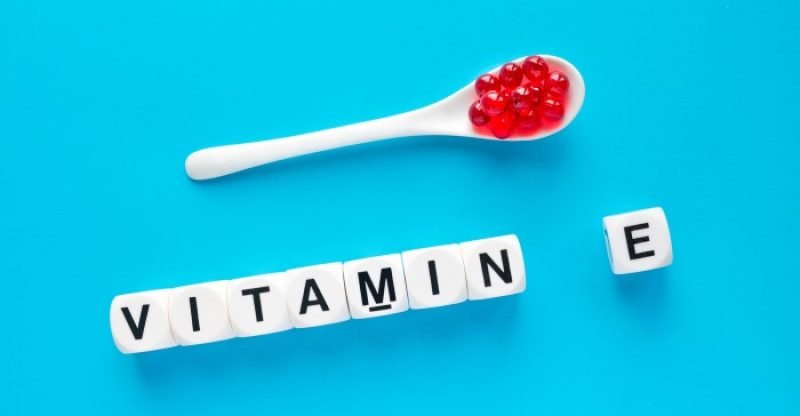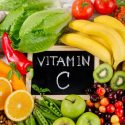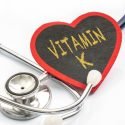18 Evidence-Based Benefits of Vitamin E
Did you know that vitamin E is a powerful antioxidant that helps you look flawless, improves your immune system, and slows down how fast you age?
It is an essential vitamin for the body, aiding neurological functions and enhancing other metabolic activities.
There are many reasons why you need this vitamin.
This post details several, including everything you need to know about vitamin E.
What is Vitamin E?
The name Vitamin E collectively refers to a group of compounds with specific antioxidant traits.
It exists in a total of eight forms.
These forms are categorized into two major divisions:
- Tocopherols – These consist of four types of vitamin E compounds: Alpha, beta, gamma, and delta. The four are distinguished by their features, which are chemical variations on their structure – the number of methyl groups and their location.
- Tocotrienols – These exists as three unsaturated bonds, but they have the same structure as the tocopherols. Tocotrienols are made up of alpha, beta, gamma, and delta compounds, all of which are more permeable to the cell membranes as a result of their bonds.
The alpha-tocopherol is the only form known to meet most human needs.
It is the dominant form of vitamin E contained in our serum.
Alpha-tocopherol works best in neutralizing oxygen-based radicals, while the nitrogen-based free radicals are dealt with by the gamma tocopherol.
Vitamin E naturally exists in many types of foods including canola oil, almonds, peanuts, olive oil, and margarine.
Other sources include leafy vegetables, dairy, cereals, and meat.
It is also sold as a dietary supplement. In most cases, the compound is processed in foods.
This vitamin is fat-soluble, which means your body stores and utilizes it depending on its necessity, and has antioxidant properties.
That said, what does vitamin E do?
Its main function is to protect your cells from the negative effects of free radicals, i.e. the molecules that are produced when the body oxidizes food, or when the cells are exposed to harmful substances like radiation and tobacco smoke.
Without vitamin E, these radicals become predisposing factors to diseases like cancer and heart disease, among others.
Taken for its antioxidant properties, Vitamin E supplements might not offer the same benefits as the naturally-occurring antioxidants found in the foods you consume.
Signs of Vitamin E Deficiency
Vitamin E deficiency, also known as hypovitaminosis E, rarely occurs, but when it does, it can be a serious cause for concern.
Failure to consume enough of this vitamin leads to a deficiency, which may cause nerve problems, among other issues.
Signs and Symptoms
- A poor immune response, which leaves you at high risk of developing several health complications.
- Poor vision, caused by free radical damage to the eye cells.
- Muscular problems like loss and weakening due to the degeneration of muscle innards and the plasma membrane, both which are essential to intact and strong muscles.
- Poor balance caused by neurological complications. When nerves degenerate, you may experience balance loss, poor coordination, and cognitive difficulties.
- Haemolytic anemia as a result of the damage to the red blood cells in your body.
- Hair loss and skin problems.
Other symptoms include digestive problems and male infertility.
Causes
Apart from a poor diet, there are other instances where the vitamin’s deficiency occurs:
- The deficiency exists in babies with low birth weights. This is especially true in cases of premature childbirth, especially those with weights below 3.5 pounds. This deficiency and its needs should be evaluated by a pediatrician or a neonatologist, and shouldn’t be ignored.
- Disorders relating to fat metabolism also cause the deficiency. Ataxia is a genetic disorder characterized by lack of vitamin E. Individuals with this condition have a poor ability to absorb vitamin E. This leads to problems with neurological function.
- Certain conditions and diseases like Crohn’s disease, liver disease, cystic fibrosis, and exocrine pancreatic insufficiency also cause vitamin E deficiency. This has to do with poor fat absorption. Dietary fat is necessary for seamless absorption of vitamin E. If you have any of the above malabsorptive problems, your body will not absorb dietary fats and vitamin E well.
Prevention and Treatment
Although it rarely occurs, vitamin E deficiency can be a serious problem.
Fortunately, it is easily prevented by consuming foods with sufficient amounts of vitamin E, or through supplementation.
Vegetable oils, whole grains, nuts, cooked dried beans, egg yolks, leafy green vegetables, and seeds are some of the food sources you can use to prevent and treat vitamin E deficiency.
Consult your doctor or physician for supplementation recommendations and correct doses of vitamin E.
Health Benefits of Vitamin E
What is vitamin E good for? Why is it essential in your diet?
The benefits of this vitamin are rarely discussed.
However, there are many reasons why you should consume foods rich in it, or take supplementation.
Here are 18 vitamin E benefits you ought to know.
Cholesterol Balance
Cholesterol is essential for optimal cell function.
It occurs naturally and is made by the liver.
Usually, in its natural state, the cholesterol in your body is balanced. Upon oxidation, however, it becomes harmful.
Via the antioxidant properties of vitamin E, cholesterol oxidation is inhibited.
Studies show that vitamin E isomers are effective in preventing it (1).
By fighting the free radicals causing oxidation, the cholesterol balance in the body is maintained.
Too much cholesterol accumulation makes it difficult for the arteries to pump blood.
When this happens, the risk of a heart attack is increased.
One of the ways used to prevent cholesterol from lining the arteries is through consumption of vitamin E (2).
This way, the progress of atherosclerosis is significantly slowed.
Caution should be taken, however, as too much of the vitamin, alpha-tocopherol, might lead to the interference of how its tocotrienols, delta, and gamma, lower cholesterol levels.
Lightens the Skin
Dark spots on the skin might be a bother to many people.
These dark spots are linked to many factors, and free radicals, liver damage, and aging are some.
Vitamin E can be used to treat most of these problems.
For scars and dark spots on the skin, for example, essential vitamin E oil is the solution.
You can get rid of the spots by applying this gel gently and directly to the affected area.
The antioxidant properties of vitamin E ensure that your skin is free from hyperpigmentation.
It fights the free radicals, leading to the lightened skin. This claim is backed up by studies (3).
The vitamin evens out the skin, and after continued use, the patches will disappear.
Also, remember that the best way to get rid of the spots is to stay away from sun exposure and to eat healthily.
Good for Cancer Prevention
This is good news to those of you who want to avoid cancer.
Consuming food daily with enough vitamin E goes a long way toward preventing the disease.
Free radicals have an impact on your DNA and can affect mutation, triggering tumor growth.
The tumor could be benign or cancerous.
Vitamin E fights free radicals and ensures that your cells and the DNA are protected.
It keeps you free from cell damage, as well.
There is more to learn about how vitamin E suppresses tumor growth, but tocotrienols are believed to inhibit angiogenesis and blood vessel growth within the tumor itself (4).
Similarly, vitamin E antioxidants have been shown to protect against the negative effects of sun exposure, which inhibits the multiplication of cancerous cells (5).
Vitamin E is also usually used to lessen the side effects of drugs used in the treatment of cancer, or those that may cause lung damage and hair loss.
Enhances Muscle Strength and Boosts Endurance
If you are an athlete or a bodybuilder, vitamin E is essential to your body.
Adequate levels of the vitamin during an exercise enable you to perform high-intensity workouts without early fatigue.
During vigorous exercise, body metabolism is heightened, which in turn leads to more oxidation of substances and free radicals.
Vitamin E elevates energy levels and counters the oxidative stress exerted on your muscles after exercising (6).
Additionally, the vitamin improves muscle strength while at the same time enhancing blood circulation in your body.
This keeps your cells healthy, allowing them to function optimally.
The antioxidant properties of the vitamin are also good for fighting inflammation, and as a result, it is also ideal for reducing muscle pain and protecting your body from related injuries.
It is, therefore, important that it be taken as a supplement if you do intense workouts.
It will aid in recovery from soreness (7) and preservation of muscle mass.
Cell Membrane Protection
The most common fundamental function that vitamin E provides is the prevention of cell oxidation.
During oxygen metabolism, the oxidation leads to free radicals, which are molecules that take electrons from other molecules in the body.
During this process, cellular membranes become susceptible to damage.
The antioxidative properties exhibited by vitamin E neutralize the radicals, thereby limiting cell membrane destruction.
Neutralization occurs when the vitamin lends an electron to the free radical molecule that lacks one.
This way, there is no room for cell damage.
In one study about the antioxidative effects of vitamin E on induced acetone oxidative stress on the membranes of male rats’ red blood cells, it was discovered that vitamin E protects the cell membranes from damage (8).
By protecting them, several conditions are alleviated.
Your body will stand a better chance of fighting off infection.
Eases Premenstrual Symptoms
Premenstrual syndrome is a burden many women have to carry.
This term refers to a range of symptoms that women experience shortly before the beginning of their period.
Although the symptoms are not universal, it is often characterized by acne, muscle and joint pains, sensitive breasts, cravings, and bloating, among others.
Vitamin E, particularly the gamma tocopherol, works to limit the production of prostaglandin, which eases breast sensitivity as well as cramping.
Also, women who suffer from reduced or low levels of estrogen are encouraged to use more vitamin E.
Apart from increasing the hormone’s level, it also elevates blood circulation to the uterus.
Moreover, it works as an anti-inflammatory agent for the swollen uterine lining.
The vitamin reduces blood loss, naturally balances your hormones, and regulates your menstruation cycle.
Taking supplements of this vitamin both before menstruation begins and after the period is highly beneficial (9).
Improves Vision and Treats Cataracts
As you age, you become exposed to an increased risk of macular degeneration.
This is a common cause of blindness. Vitamin E can be used to rectify or reduce chances of it.
The condition occurs when the light-sensitive part of the eye, the most central part of the eye’s retina, starts to deteriorate.
When this happens, you lose your eyesight.
Studies show that vitamin E supplements may slow the progress of macular degeneration (10).
This is attributed to a claim that the condition is linked to what nutrients you absorb.
Apart from macular degeneration, vitamin E is also known to treat cataracts.
Cataracts are one of the major causes of vision impairment.
Although treatable, it is often the leading cause of permanent vision loss.
Vitamin E supplementation has been proven to reduce the risk of cataract development (11).
Thickens Hair and Prevents Early Balding
Vitamin E is a powerful antioxidant, which helps in the reduction of hair damage caused by environmental factors.
It promotes the circulation of blood to the scalp, leading to healthy and increased hair (12).
When blood is pumped to all parts of the scalp, it stays healthy and keeps the hair from falling out or becoming weak.
Vitamin E allows the skin to stay constantly moisturized and keeps your scalp free from dryness as well as flakiness.
It also repairs damaged hair follicles, and conditions your hair from the root to the tip, promoting healthy and thick growth.
Vitamin E also leads to the slow development of grey hair.
By nourishing the follicles, faster growth of hair is encouraged.
Apart from healthy hair growth, vitamin E prevents premature balding by sealing the moisture into the scalp, preventing it from becoming dry.
Dry scalp leads to itching, dandruff, and eventually hair loss.
It Balances Hormones
Vitamin E is crucial in cases of hormonal imbalance; this is why it is ideal for women with premenstrual syndrome.
The vitamin balances both the nervous and endocrine systems by naturally ensuring that they exist in an equilibrium (13).
Some of the symptoms of hormonal imbalance include premenstrual syndrome, infections of the urinary tract, weight gain, anxiety, fatigue, and skin changes, among others.
By ensuring that your hormone levels are balanced, it is easier for you to manage and maintain your weight.
You can also sustain a regular menstrual cycle.
Keep in mind that the reasons that lead to the need for the use of vitamin E in fighting hormonal imbalances have a few sources.
Chemical-laden foods, some processed foods, beauty and cleaning products, and other environmental factors are hormone disruptors.
You should supplement your diet with vitamin E as a solution.
Prevention of Alzheimer’s Disease
Vitamin E is highly beneficial to the elderly or those who are about to become so.
Vitamin E delays the progress of age-related memory loss and the decline of cognitive ability.
The anti-inflammatory properties of tocotrienols contribute to a reduced chance of getting Alzheimer’s disease.
It also slows down the progress of the disease and decline in individuals with moderate Alzheimer’s, as well as other neurodegenerative disorders (14).
Taken with vitamin C, vitamin E lowers the risks of the development of many forms of dementia.
Daily supplementation of the vitamin is necessary.
However, it is important to note that health experts recommend for the maximum benefit the consumption of foods with substantial amounts of Vitamin E or beverages with high amounts of the vitamin, as opposed to oral or capsule supplements.
Vital for Growth and Development during Pregnancy
One of the signs of vitamin E deficiency can be seen in premature or low weight infants.
This shows that the vitamin is essential for growth and development during pregnancy.
It allows infants and young children to develop better, as it leads to the protection of important fatty acids.
It also helps in the control of inflammation.
For this reason, mothers, especially those who are nursing, and most children from infancy to the age of 2 should take enough vitamins through natural, food-based supplements.
This ensures that growth abnormalities do not occur (15).
During pregnancy, vitamin E is useful for most women.
It prevents the increase in blood pressure, and it helps to manage painful menstruation, hot flashes, breast cancer, preeclampsia, premenstrual syndrome, and menopausal syndrome.
Prevents Disease Development
Cancer and heart disease progress due to the damage to the healthy cells done by free radicals.
These radical molecules naturally form in your body, and they may cause irreparable damage if their oxidation is accelerated.
The antioxidative properties of vitamin E scavenge the free radicals and, in turn, slow down or prevent the onset of cell damage.
This prevents the development of several chronic diseases (16).
Studies show that certain forms of vitamin E reduce cell damage, fight inflammation, and gradually slow cell aging, avoiding complications like heart disease (17).
The vitamin improves the immune system, helping you develop a better response and preventing severe conditions and common illnesses from developing in your body.
This immunity is enhanced by alpha-tocotrienol and gamma-tocotrienol.
To a lesser degree, the delta form seems to be effective.
Protects You from Sunburns
What else is vitamin E good for? If you often wonder what the solution to sunburns is, vitamin E is your answer.
It protects you from the effects of ultraviolet rays.
Overexposure to the sun leads to hyperpigmentation.
It makes parts of your skin have dark patches, which could worsen as time goes by.
It could also be the reason why you have blackheads or breakouts on your skin.
Overexposure to the sun also leads to damaged cell membranes and increased skin sensitivity to sunlight.
As mentioned earlier, vitamin E helps to protect cell membranes.
Its antioxidants are also able to fight the free radicals that cause the negative effects by the sun.
Several studies have been conducted to determine the neutralizing properties of Vitamin E on free radicals.
The studies prove that it soothes sunburns (18).
Acts as a Moisturizer and is Used to Treat Fingernails
Vitamin E is a great skin moisturizer.
This is beneficial to your body, as it prevents water loss and dry skin.
The vitamin is recommended for individuals looking to get the supple and smooth skin.
Vitamin E’s ability to help the skin retain moisture is also attributed to the fact that the vitamin is oil-soluble and heavier than other products, which are soluble in water.
Other studies also show that since vitamin E oil is a great moisturizer, it is a great treatment for dry nails and yellow nail syndrome (19).
Apart from keeping your skin moisturized, the vitamin when mixed with lotion and applied directly to the hand provides some healing properties to the fingernails.
For even better results, soaking your fingers in vitamin E oil ensures that your nails always stay strong, healthy, and soft.
Promotes a Healthy Heart
As mentioned earlier, vitamin E reduces the effects of atherosclerosis, which puts too much pressure on the functioning of the heart.
Atherosclerosis is a condition that leads to the narrowing and hardening of the arteries.
This is a serious condition that could lead to death if not diagnosed and treated early.
Luckily, if you regularly consume a proper diet that incorporates vitamin E, you may not experience this problem.
Studies show that the consumption of foods rich in vitamin E lowers the risk of the development of heart disease both for men and women (20).
Furthermore, it is a blood thinner and it prevents the formation of blood clots, reducing the chances of experiencing heart disease.
Vitamin E’s benefits to the heart don’t end there.
By fighting off infections, and eliminating the toxins in your body, the likelihood of your experiencing a heart attack is minimized.
This is, in fact, the main reason why the vitamin is good for your heart.
Used to Fight Wrinkles and Stretch Marks
Vitamin E is an anti-aging agent, preventing early onset of wrinkles.
Its moisturizing properties ensure that your skin always remains healthy, radiant, and soft.
As an antioxidant, it boosts collagen production in your skin.
Collagen is a fiber-like substance that can be stimulated to maintain skin elasticity (21).
This effect reduces the appearance or the occurrence of fine lines, which are early signs of aging.
Studies discuss this more and in detail (22). Furthermore, the vitamin is used to get rid of stretch marks.
When the skin loses its elasticity, stretch marks become more conspicuous.
Their manifestation leads to stripe-like marks on your skin.
Vitamin E restores the skin’s elasticity, making the marks disappear.
That is why it is used in topical creams (23).
Inhibits Platelets
Platelets are the type of blood cells responsible for blood clotting during an injury.
Due to the clotting, the bleeding is stopped.
These cells are so crucial that without them, you could bleed to death.
In other cases, the clotting might become severe.
This is especially the case when the clot blocks the body supply of oxygen through the blood by traveling to the brain or the heart.
When this occurs, a stroke or heart attack is often inevitable (24).
It could also lead to a pulmonary embolism if the clot travels to the lungs.
Vitamin E inhibits the platelets and prevents the possibility of severe blood clots (25).
It thins the blood and hinders platelet clumping.
And the vitamin allows more blood flow through the arteries, leading to better circulation to all parts of the body.
It May Restore Hearing
Pinpointing the exact cause of hearing loss is not easy.
This condition does, however, affect many people.
Sudden hearing loss, also known as idiopathic sensorineural hearing, is a condition that is believed to be caused by a virus or bacterium and affects up to 4000 Americans yearly.
Sometimes neurological problems, circulatory disorders, or severe and traumatic injuries are deemed to be responsible.
So, what does vitamin E do? One study claims that the vitamin restores sudden hearing loss.
It shows that the concurrent administration of Vitamin E and vitamin C to patients with idiopathic sudden sensorineural hearing loss has beneficial effects.
“[It] reduces the level of reactive oxygen metabolites produced by inner ear ischemia and reperfusion injury after treatment” (26).
These same patients also showed better hearing at significant levels.
This is no doubt an easy home remedy to deal with sudden hearing loss.
Best Vitamin E-Rich Foods
There are many sources of vitamin E in the food you can eat.
Most of them include:
- Almonds – An ounce contains 7.4mg of the vitamin. You can source it from almond milk or almond oils.
- Raw Seeds – Seeds like sunflower contains 90 percent of the recommended daily value if you consume only a cup of them. It is one of the best vitamin E-rich foods.
- Swiss Chard – In addition to being a great source of other vitamins, a boiled cup of this vegetable contains 17 percent DV of vitamin E.
- Mustard Greens – They contain vitamins K, A, C, and E. A cup of mustard greens provides you with 14 percent of the recommended value of vitamin E.
- Spinach – A cup of boiled spinach offers almost a quarter of the daily recommended vitamin E value.
- Turnip Greens – Not a common food, turnip greens, apart from containing other vitamins, has approximately 12 percent DV in only a cup.
- Kale – Compared to other greens, kale has a low amount of vitamin E, but it still offers you about 6 percent DV in one cup.
- Plant oils – These are good sources of vitamin E. Wheat germ oil, for instance, offers a complete daily value. Sunflower oil, coconut oil, and cottonseed oil, among others, make great sources.
- Nuts – An ounce of hazelnuts contains 20 percent DV. Pine nuts have 2.6mg of Vitamin E in one serving.
Other food sources include avocado, coriander, fish, broccoli, papaya, and olives, among many more.
Consuming all the above-listed foods regularly will supply you with sufficient levels of vitamin E.
They remedy the vitamin deficiency and are the first step to achieving a healthy lifestyle.
Vitamin E Precautions
Vitamin E supplementation should be taken with great care.
Consulting your doctor or physician helps ensure you are safe.
Vitamin E Risks
For most healthy individuals, vitamin E is healthy.
However, there are some instances where side effects may occur.
If taken orally in high doses, it might be unsafe.
This is especially the case if you have heart disease or diabetes.
Severe and life-threatening effects may happen.
Too much Vitamin E might lead to a type of stroke referred to as a hemorrhagic stroke.
This happens when you bleed into the brain, and it may occur if you take the vitamin in doses between 300 and 800 IU every day.
High doses of vitamin E might also lead to diarrhea, rash, weakness, blurred vision, stomach cramps, bleeding, bruising, fatigue, and headaches.
And the vitamin might cause a life-threatening effect to babies’ intestines, referred to as necrotizing enterocolitis or NEC.
Vitamin E Dosing
Vitamin E should be taken with extra caution.
The daily use of high dosages for the treatment of various diseases like cardiovascular disease, diabetes, or cancer is not recommended.
Similarly, great care and consultation with the doctor should be done first on the right dosage for treating macular degeneration, arthritis, Alzheimer’s disease, dysmenorrhoea, and pre-eclampsia.
Nevertheless, vitamin E dosing, according to clinical trials, falls within 400 and 1600 units per day.
The safest upper limit established is 1000 milligrams in a day, or the equivalent of 1500 IU, while the safest lower dosage is between 150 IU and 200 IU.
If you miss a dose of vitamin E, it is recommended that you take it as soon as you remember.
However, you should skip it if it is almost time for your next dose.
Your dosage will also vary, especially if you are pregnant or nursing.
Consult with your doctor first.
Vitamin E Interactions
Before taking any vitamin E supplements, ensure that you tell your doctor or physician about other drugs you are taking, especially if they are over-the-counter drugs, other dietary supplements, vitamins, recreational drugs, and/or herbal home remedies.
For example, if you are taking mineral oil, taking vitamin E is really not advisable.
Similarly, consult with your doctor if you are on the following medications, or if you are taking these drugs:
- Aptivar or tipranavir.
- Any of the bile sequestration including Welchol, Colestid, and Prévalait.
- Drugs for iron replacement. These include ferumoxytol, ferrous sulfate, ferric carboxymaltose, and ferrous gluconate.
- Weight-loss drugs and supplements like orlistat.
- Warfarin.
- Vitamin E also interacts with supplements that thin the blood. You should, therefore, be cautious if you are taking fish oil, gingko biloba, omega-3 fatty acids, garlic, and ginseng, among many more.
Don’t drink and take vitamin E.
The vitamin combined with alcohol heightens the risk of bleeding.
Therefore, do not mix the two. Talk to your doctor first.
It hasn’t yet been established whether the way the liver processes vitamin E is similar to how grapefruit juice is processed.
To be on the safe side, it is important to talk to your doctor about it before supplementing.
If you can’t, don’t use grapefruit juice while you are taking vitamin E supplementation.
FDA Compliance
The information on this website has not been evaluated by the Food & Drug Administration or any other medical body. We do not aim to diagnose, treat, cure or prevent any illness or disease. Information is shared for educational purposes only. You must consult your doctor before acting on any content on this website, especially if you are pregnant, nursing, taking medication, or have a medical condition.
HOW WOULD YOU RATE THIS ARTICLE?






